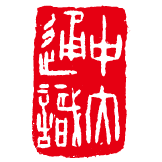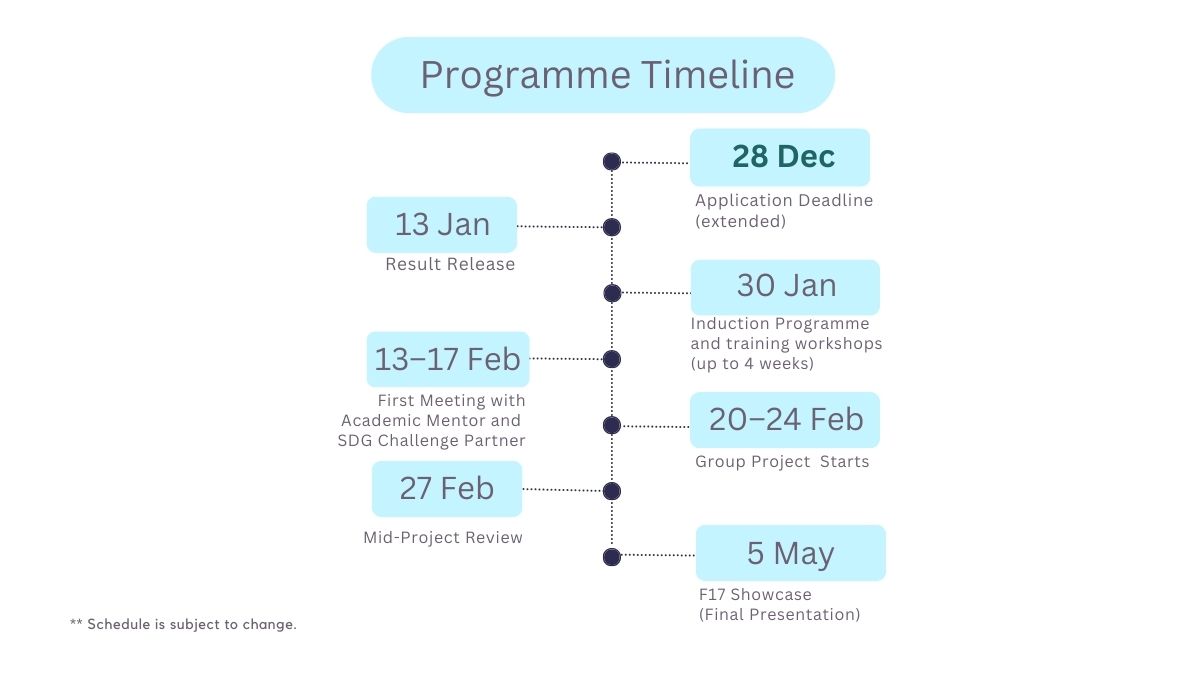Are you interested in tackling real-life global challenges together with students around the globe?
Are you passionate about the Sustainable development goals?
Would you like to develop employability skills with global corporations while taking a course and earning credits?
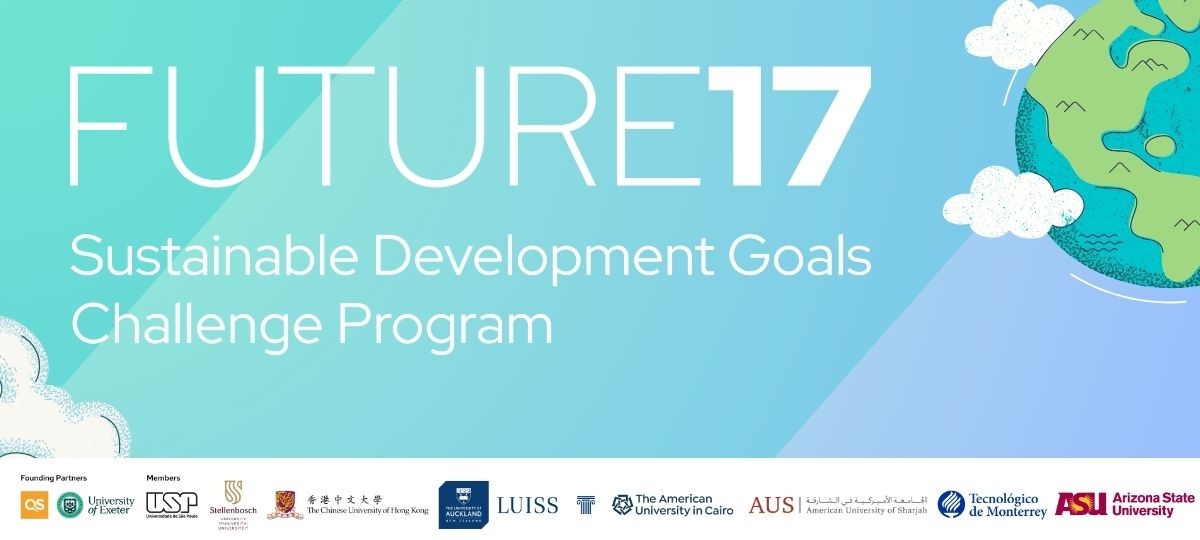
Future 17: website banner (2223T1 call) – 4
Overview
Future 17 is a new global initiative offered by the University of Exeter and Quacquarelli Symonds Limited (QS) in the UK with participation from leading international universities. It is designed to support students to develop skills needed for tackling 21st-Century global challenges through working with industry and academic mentors as well as peers from around the world to create innovative solutions for real-world issues associated with one or more of the 17 United Nations Sustainable Development Goals (SDGs). Students form international, interdisciplinary and multicultural teams with their peers from a consortium of universities to work on projects defined by SDG Challenge Partners (businesses, charities, governments, NGOs, etc.). Our SDG partners engaged in the pilot round included Adobe, EY, Goldman Sachs, EY, Huawei, Unilever, etc.
The Programme is available for both terms in 2023–24. The registration period for the Programme in Term 2, 2023–24 is from: 20 November 2023 to 28 December 2023. If you are interested, please sign up by completing the webform by 28 December 2023 (Monday): https://cloud.itsc.cuhk.edu.hk/webform/view.php?id=13678191. (Students will be required to upload a photo and explain your aspirations in this programme.)
Programme structure
- Online programme induction on SDGs and skills for tackling sustainability challenges
- Online group collaboration with global students and mentors (academic and industry mentors)
- Future17 solutions showcase event
Partner universities
Students will form groups with peers of partner universities from different continents: CUHK in Hong Kong, University of Exeter in the UK, Stellenbosch University in South Africa, the University of São Paulo in Brazil, the University of Auckland in New Zealand, Luiss Guido Carli in Italy and the American University in Egypt. More universities will join in the future rounds.
Industry partners*

*Industry partners in the pilot run.
Projects
Each student team will be given the challenge of designing ways to research in sustainability problems and identifying approaches for delivering appropriate solutions, honing your skills in design thinking, knowledge in sustainable development goals and hands-on experience in problem solving.
Eligibility
Students from all disciplines who have completed the first year of undergraduate studies are welcome to apply.
Credit
CUHK participating students may apply for unit exemption (applicable to undergraduate students only). Three units are recognized toward fulfilling the University General Education course requirements. Approval for credit exemption subjects to the final endorsement by the Office of University General Education.
Application
For interested students, please submit the online application form before the deadline. Please prepare a profile photo of yourself for uploading to the application form, and a short paragraph telling us why you wish to join the programme. Shortlisted participants will receive a confirmation e-mail and programme details 2 weeks after the application deadline.
Information Session (January 2022)
*The information session in 2022 is for reference only. Please refer to the most updated information above for the latest programme.
FAQ for the Programme
How will Future 17 work?
- Students will first undertake an online induction programme that will develop skills for collaborative, challenge-based and inter-cultural learning, which will promote forms of Design Thinking for tackling global challenges. They will then work with academic and SDG Challenge Partner mentors online to diagnose a sustainability challenge and develop an approach for developing one or more solutions.
- They will be assessed on the basis of a group project output (a report or equivalent) and an online group presentation to an expert panel.
- Student teams will be drawn from at least two partner universities to work in small groups of typically 6-8 students.
- Students will be supervised by at least one academic mentor from a partner university, with expertise in the challenge area. There will also be a mentor from the SDG Challenge Partner, whose role will be to outline the sustainability challenge, provide context (and potentially data) and act as an agent provocateur.
What is the programme structure?
For details of the programme, you may refer to the Programme Handbook.
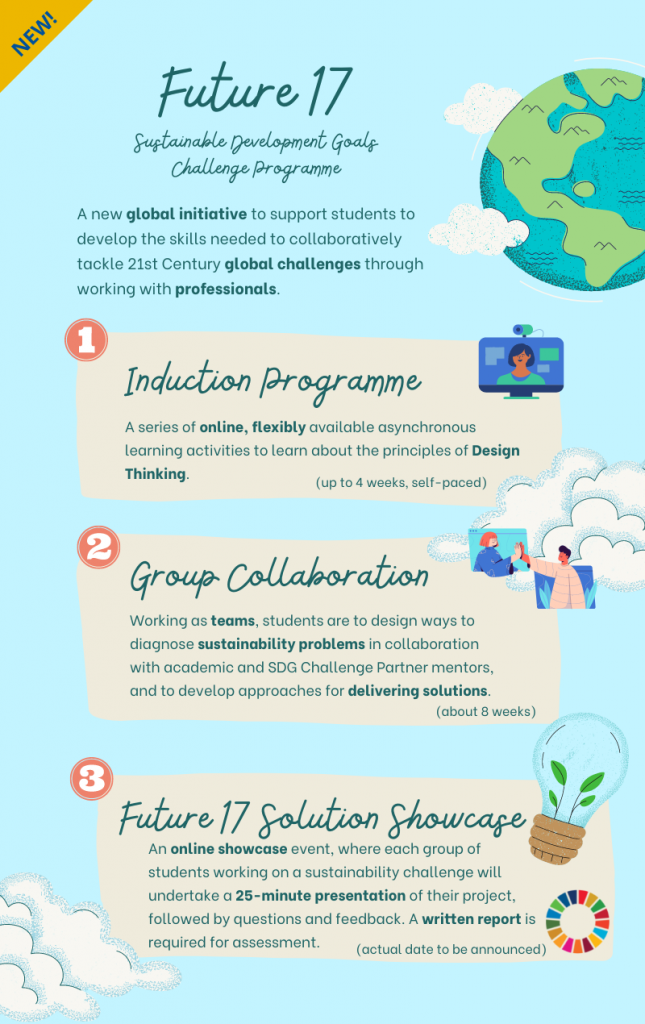
Is there a timeline for the programme?
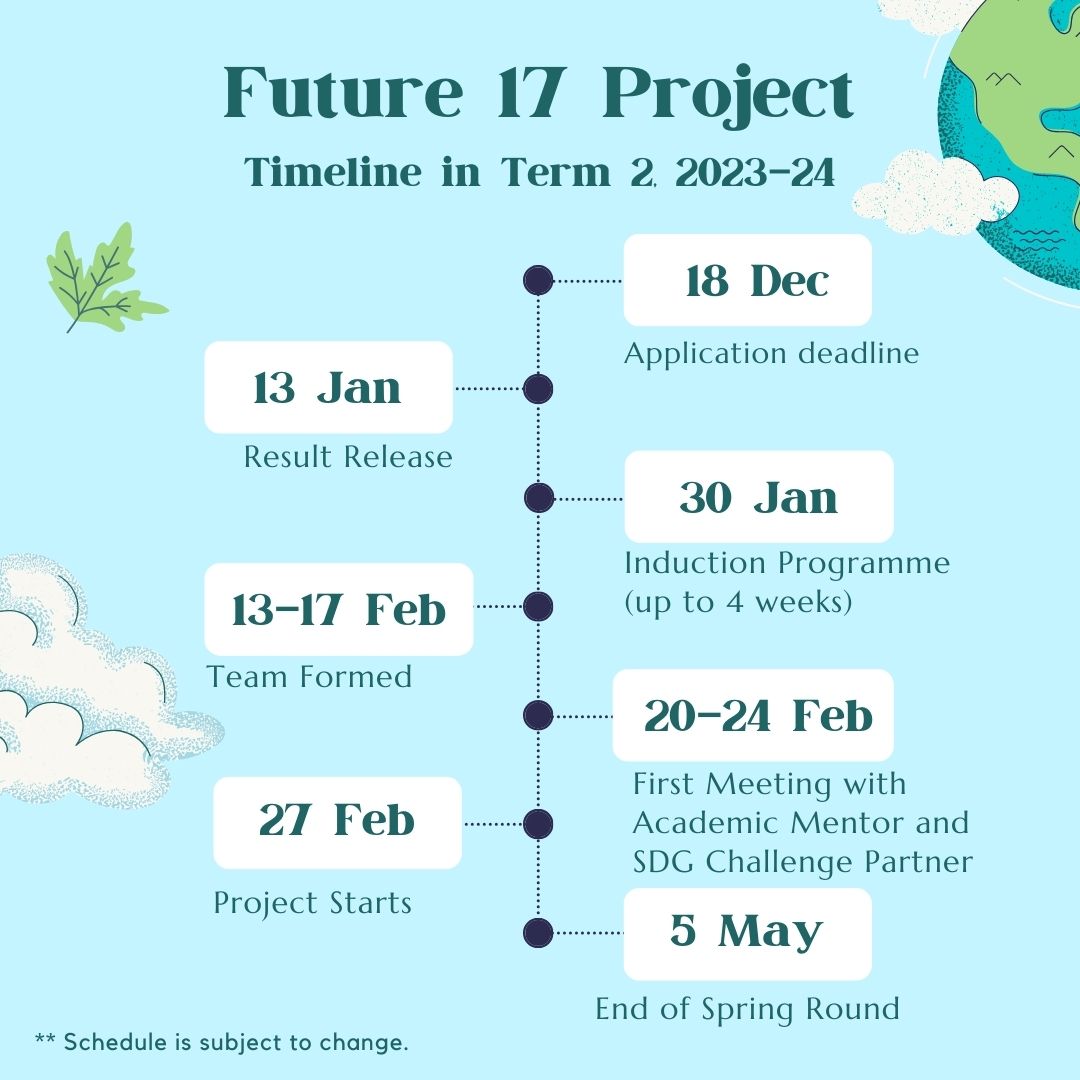
Which are the partner institutions?
The partner institutions joining the round in Term 1, 2023–24 are:
- The Chinese University of Hong Kong (Hong Kong, China)
- Stellenbosch University (South Africa)
- University of Exeter (UK)
- University of Auckland (New Zealand)
- University of São Paulo (Brazil)
- University of Auckland (New Zealand)
- Luiss Guido Carli (Italy)
- American University (Egypt)
Which are the SDG Challenge partners and what are the examples of projects?
The participating SDG Challenge Partners may vary for every offering. Here is a list of some of the invited partners for the pilot run:
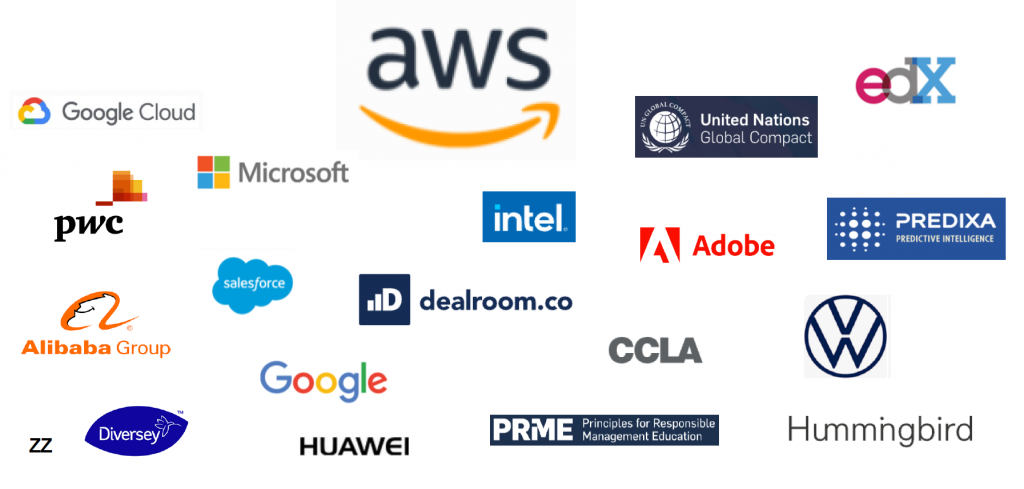
Am I eligible to apply?
CUHK Students from all disciplines who have completed the first year of undergraduate studies are welcome to apply. We are looking for enthusiastic students who have a keen interest in understanding more about SDGs, as well as with high self-motivation to join this meaningful programme.
How do I apply?
If you are interested in joining this programme in Term 2, please submit the online application form by 18 December 2023 (Monday).
My schedule is a bit full for Term 1. Is the Programme available in upcoming years?
Yes! The Programme is available in both Term 1 and Term 2. Please reserve the time next academic year for that if it works better for you. Stay tuned for the promotion later!
Will I receive credit for participation?
Using the Future 17 Programme to apply for course and unit exemption is optional. CUHK participating students have been given the flexibility to decide according to their wills if they would make an official application or not. However, to ensure commitment to the Programme, it will take up 3 units towards the total course load in the academic term, so please reserve enough units for the Programme.
Upon successful completion of the Programme, CUHK undergraduate students may apply to the Office of University General Education for course and unit exemption in the University General Education (University GE) requirements. Following the prevailing practice and framework of granting University GE course and unit exemption, as in the case of a student completing a course in a recognized student exchange programme, 3 units in the most approximate University GE Area from among Areas A, B, C or D could be approved depending on the nature of the Future 17 project once only.
Who should I contact for more information?
For enquiries, please direct your e-mail to sdg-ouge@cuhk.edu.hk.
What do CUHK students say about the Programme?
Our mentors provided us with so many solid and helpful suggestions. I had a great time collaborating with teammates with diverse cultural backgrounds.
Enzo LI
(Year 1, Public Health)It was a great opportunity to give back to society, with guidance from respectable tutors and learning something new at the same time. I’m very happy about the programme and eager to promote it to my classmates!
Fiona LEONG
(Year 3, English)I hope to take action on a similar topic or even other SDGs in the future to further promote the importance of sustainable development in Hong Kong.
Osbert Raphael Leung
(Year 2, Urban Studies)(The Programme allows us to) exchange ideas with students having the same vision from different universities.
Hoi Yan CHEUNG
(Year 3, Earth System Science)My experience working with People of Impact, which aims to promote the SDGs to a wider audience and motivate people to apply them in their daily lives, has shown me the possible courses of action I can take in the future to incorporate the SDGs into my life.

